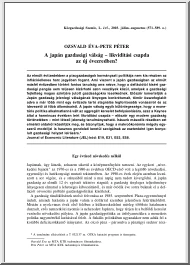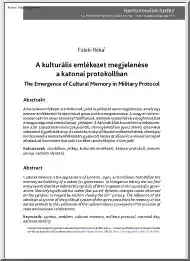No comments yet. You can be the first!
What did others read after this?
Content extract
Marijuana (Cannabis) All forms of cannabis have negative physical and mental effects. Several regularly observed physical effects of cannabis are a substantial increase in the heart rate, bloodshot eyes, a dry mouth and throat, and increased appetite. Use of cannabis may impair or reduce short-term memory and comprehension, alter sense of time, and reduce ability to perform tasks requiring concentration and coordination, such as driving a car. Research also shows that students do not retain knowledge when they are high. Motivation and cognition may be altered, making the acquisition of new information difficult. Marijuana can also produce paranoia and psychosis. Because users often inhale the unfiltered smoke deeply and then hold it in their lungs as long as possible, marijuana is damaging to the lungs and pulmonary system. Marijuana smoke contains more cancer-causing agents than tobacco smoke. Marijuana contains 421 bioactive chemical molecules. Sixty-one are called cannabinoids, and
when inhaled or ingested, become absorbed and remain embedded in the membrane of every cell in the body for months at a time. After smoking only one "joint," 40 to 50 percent of the THC (tetrahy-drocannabinol), one of the chemicals found in the leaves and flowering tops of the cannabis or marijuana plant, remains in the membranes for four to eight days. Ten to twenty percent remains for 30 to 48 days, and one percent can remain for four to six months. Because the brain is one-third fatty tissue, marijuana is retained in the brain and the brain cells are steadily and irreversibly damaged. When messages from the brain are blocked because of a concentration of THC in the cells, thoughts, memory, feelings, and behaviors are affected. THC has caused birth defects in laboratory animals and may cause birth defects in humans as well. It is known that THC passes from the mother through the placenta to the developing baby, and from a breast feeding mother to the baby. Use by
teenagers who are at an age of rapid physical, mental, emotional, and sexual development, interferes with these critical areas of growth. Marijuana causes a temporary increase in heart rate similar to the effect produced by stress, and may produce acute panic reactions, especially among young users. Long-term users of cannabis may develop dependence on the drug. The drug can become the center of their lives
when inhaled or ingested, become absorbed and remain embedded in the membrane of every cell in the body for months at a time. After smoking only one "joint," 40 to 50 percent of the THC (tetrahy-drocannabinol), one of the chemicals found in the leaves and flowering tops of the cannabis or marijuana plant, remains in the membranes for four to eight days. Ten to twenty percent remains for 30 to 48 days, and one percent can remain for four to six months. Because the brain is one-third fatty tissue, marijuana is retained in the brain and the brain cells are steadily and irreversibly damaged. When messages from the brain are blocked because of a concentration of THC in the cells, thoughts, memory, feelings, and behaviors are affected. THC has caused birth defects in laboratory animals and may cause birth defects in humans as well. It is known that THC passes from the mother through the placenta to the developing baby, and from a breast feeding mother to the baby. Use by
teenagers who are at an age of rapid physical, mental, emotional, and sexual development, interferes with these critical areas of growth. Marijuana causes a temporary increase in heart rate similar to the effect produced by stress, and may produce acute panic reactions, especially among young users. Long-term users of cannabis may develop dependence on the drug. The drug can become the center of their lives




